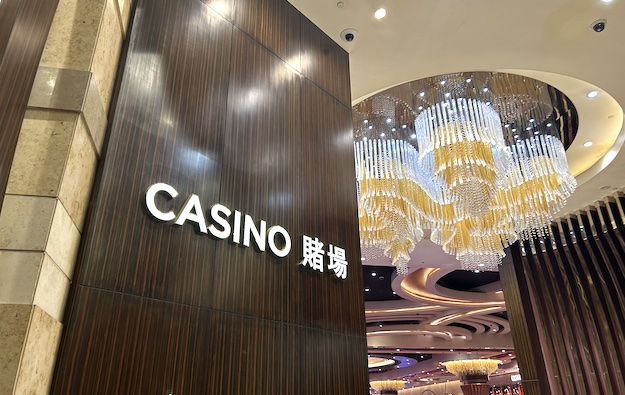
The year 2024 ended in Macau with a visit from China’s leader, President Xi Jinping. The tour coincided with the 25th anniversary of Macau’s handover from Portuguese administration to that of China, meaning the city is at the halfway point of a 50-year period that will see Macau fully-absorbed into the mainland’s governmental system.
The visit was also a reminder of the Communist Party of China’s continued recognition of Macau’s role as the only place in China where casino gambling is legal. Mr Xi mentioned the industry specifically during his time in the city, saying it was developing in an “orderly and healthy manner, in accordance with the law”.
But China’s ongoing campaign against mainland residents engaging in “overseas gambling” showed no sign of abating during the year. Warnings were issued to Chinese citizens by the country’s diplomatic missions within a number of regional casino jurisdictions.
China’s amended criminal code, that outlaws anyone assisting in cross-border gambling, came into effect from March 1, 2021. A central government campaign against it has been consistently pursued since then.
In Asia Pacific, Thailand could legalise casino business by October 2025, according to one of the country’s opposition MPs speaking to GGRAsia on the sidelines of the Thai Entertainment Complex Summit in the country’s capital, Bangkok, in early December.
At the same event, a number of commentators and analysts said Thailand should not assume it can build such an industry by focusing on Chinese customers.
In January, GGRAsia reported that the Macau junket industry – a shadow of its former presence in the market – had seen the number of agents registered with the city’s government in 2024 halved, to just 18.
Though that month GGRAsia also heard via an interview with a senior Melco Resorts & Entertainment Ltd executive, how Studio City on Cotai was adapting and thriving in the new, largely post-junket era.
Operators in a number of Asian jurisdictions – including NagaCorp Ltd in Cambodia – reported during the year a drop-off in the number of VIP players drawn from the region.
China slowdown, global uncertainty
While operators didn’t specify whether China’s curb on overseas gambling was a factor, general regional and global uncertainty amid the looming threat of trade wars and ongoing actual shooting wars, in places including Ukraine, might not have helped Asian high-roller confidence.
In February, the city-state of Singapore, which has a casino duopoly with proven appeal to mainland clients, introduced a visa-free entry to Singapore for mainland China tourists, with a reciprocal arrangement for Singaporeans.
February also saw the launch in South Korea of the foreigner-only casino at Mohegan Inspire Entertainment Resort, the first foray outside North America by the United States-based Mohegan Tribal Gaming Authority.
February marked Lunar New Year, with Macau receiving nearly 900,000 visitors – mostly from the mainland and Hong Kong – during the first five days of the Chinese New Year break.
In March, Genting Singapore Ltd, the promoter of Resorts World Sentosa, one half of Singapore’s casino duopoly, announced that as part of a plan to expand the resort, it would have a new “Waterfront” development, with work starting in mid-November.
Additionally in that city-state, Resorts World Sentosa’s market rival, Marina Bay Sands, promoted by Las Vegas Sands Corp, spent 2024 working toward completion of a US$1.75-billion revamp of its existing three towers at the complex. Revamp work – now focused on Tower 3 – is due to be completed in the second quarter of 2025.
Separate from that, Las Vegas Sands expects a US$8-billion expansion project – that will see addition of a fourth hotel tower, and extra gaming space at Marina Bay Sands – to be completed by mid-2029. The company forecast a 40-percent leap in adjusted property earnings before interest, taxation, depreciation and amortisation (EBITDA) once the new phase – dubbed “MBS IR2″ – is in operation.
‘Smart tables’ on the march
The year 2024 saw the rise of the ‘smart table’ in Macau and some other locations in the region.
In March, Macau’s casino regulator mentioned a meeting with the city’s six operators to discuss issues including surveillance systems and “smart” gaming tables. The officials indicated they were in favour of both.
In late April, Macau casino operator Galaxy Entertainment Group Ltd announced Capella Hotels and Resorts as its brand partner for a new ultra-luxury hotel tower at the Galaxy Macau resort, in the part of the complex known as Phase 3D.
The firm said the 17-storey hotel – to be known as Capella at Galaxy Macau, and the eighth hotel at the complex – is due to open in “mid-2025”.
At the start of May, Macau saw wide adoption, in time for May Golden Week, of a baccarat side bet – ‘Small 6/Big 6’ – with attractive payout to winning customers, but that is likely to boost house edge overall.
At the end of May, Solaire Resort North, a new casino complex developed by Philippines-listed Bloomberry Resorts Corp, opened at Vertis, Quezon City, north of Metro Manila. The US$1.0-billion property features 526 rooms and suites.
From May 27, eight outer-mainland cities became active members of the Individual Visit Scheme (IVS). At the close of that month, Robert Goldstein, chairman and chief executive of Las Vegas Sands, the parent of Macau casino firm Sands China Ltd, told GGRAsia in a wide-ranging interview, that China’s decision to increase the number of mainland places where people can apply for IVS exit visas to travel to Macau was “hugely positive” for the city’s gaming industry.
Related articles